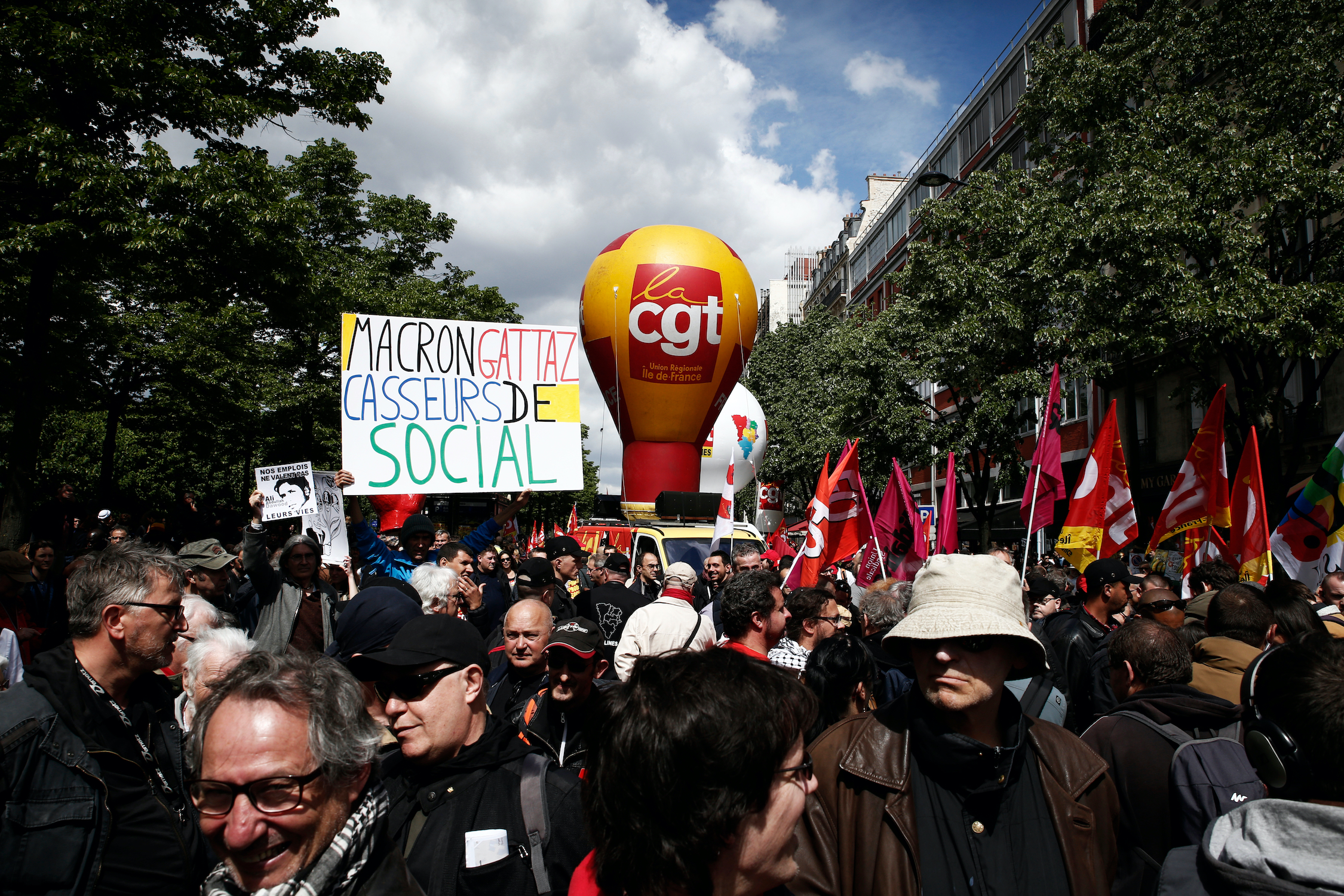The neoliberal State has undermined public goods by many means. The initial promise of neoliberalism was to clarify the distinction between the mission of the State and the mission of the market, but the paradox is that after 30 or 40 years of neoliberalism, what we have is a very blurred situation, with unprecedented hybridisation and confusion between public and private interests.
Protecting the public sphere and restoring democratic citizenship
Research Professor
- We should be able to maintain an autonomous public sphere, a public sphere where citizens have an equal influence on regulation.
- Citizens should, through NGOs and public agencies, be the guardians of the border between the public and the private.
- Citizens should be able to have an effect within the State. To achieve this, the State should not be geared exclusively towards the development of private markets.
Public versus private interests

Photo by Alexandros Michailidis
Protecting the public sphere
We should be able to maintain an autonomous public sphere, one where citizens have an equal influence on regulation, where a form of equality of participation in public decision is secured. If this is undermined, it’s the legitimacy of democracy itself which is undermined because equal citizenship is at the very core of our understanding of democracy. If there’s a sense that some economic forces have a bigger influence than civil societies’ actors, then it’s the legitimacy of government that is endangered and, of course, the willingness of citizens to obey to these very regulations made by these governments. So, it’s democracy which is at stake in our capacity to maintain a division between the public and the private and to protect the sphere of democracy.
Putting regulation at risk
The blurring of the private and the public divide is putting at risk our capacity to regulate, for example, the environment, and to engage the ecological transition. Why? Probably because the public agencies that are in charge of securing the standards, in terms of health, environmental standards and medicine, are under pressure from companies and lobbyists.
Lobbying today is very complex. It’s not just about having lunch with a regulator; it’s about investing in science and building a relationship with agencies that, of course, will be more favourable to the more polluting industries. The example that could be given is that of our failed capacity to lead the ecological transition in a situation where ecological, environmental and health regulation are under siege by many interests and, therefore, leaders are more reluctant to engage in a strong public intervention.
Restoring the public and private divide
One of the levers is to try to restore a sense of separation between the public and the private, particularly in terms of the careers of top civil servants and regulators. It’s a matter of democratic interest, given its consequences on our capacity to regulate. It’s very important that we be strict with the modalities of going in and out of the State – not only moving from the State to work in a private company but also of coming back in a revolving door effect. This is one of the key mechanisms that is undermining the border between the public and the private.
One other element that could really strengthen our capacity to push for public interest is knowledge. It’s quite striking how little we know about these relationships, these peripheries of the State and the relationship between the private and public actors.
The erosion of trust

Photo by Remy Chanteloup
There is quite widespread awareness of public interest in society. There is a sense that we collectively need more public regulation when it comes to multinationals, such as GAFA, that are accumulating private power but need to be counterbalanced by strong public regulation. We also understand that there is a need for public probity of civil servants and politicians, and each scandal that comes out shows there is a very diffused understanding of the role of public interest among citizens. What is missing is the ladder through which these citizens can actually act, participate and take control of these public-private partnerships, these new collusive ties that we see between businesses, the State and public affairs companies.
Changing the status quo
There is a role that citizens should be playing, through NGOs and public agencies, that could give them a stronger role as surveillants, as guardians of this border between the public and the private. This border is not social or professional: it’s a frontier of democracy itself. It’s a border that needs to be guarded not only by State actors or MPs but also by citizens and NGOs who should be caring for it because it’s a public good.
The meaning of citizenship today
Citizenship is a notion that relates to the autonomy of the citizen and their equality with other citizens. One of the essential elements for the empowerment of citizens is their capacity to have an actual effect within the State. This means that we need a different understanding of the State, one that’s not exclusively geared towards the development of private markets. We need a State that’s cautious and caring about the participation of citizens in all points of the State – in each of its public policies, as a counter power inside the State. This is important because the issue is to bring representativeness and to diffuse citizens’ interests, especially those for the defence of the environment or social rights, which often have less representation.
Public management during the COVID crisis

Photo by Deflet
What we can see with the current COVID crisis is the extent to which States have been transformed, the extent to which this neoliberal transformation has weakened the capacity of our States to intervene and protect citizens. It’s very striking to see that the French government has been outsourcing part of its strategy towards COVID, in terms of testing and vaccination, to McKinsey, a consulting company that has been working with the UK and the United States government.
It’s been striking to see the progressive empowerment of these public management companies, which have an international view of the pandemic, in accumulating data from governments all across the world. This is a transformation that has democratic consequences because companies such as McKinsey aren’t part of the democratic circuit; they’re outsourced and difficult to control or to regulate in their role as co-governors of the response to COVID.
Discover more about
democratic citizenship
Vauchez, A. (2016). Democratizing Europe. Palgrave Macmillan.
Hennette, S., Piketty, T., Sacriste, G., & Vauchez, A. (Eds.) (2019). How to Democratize Europe. Contributions to a Transnational Debate. Harvard University Press.
Vauchez, A. (2020). In Search of Europe’s Phantom Public. “Public-ness” and the European Union. German Law Journal, 21(1), 46–50.